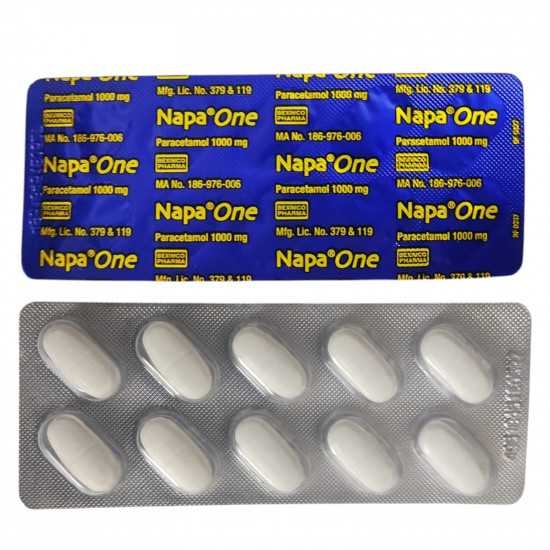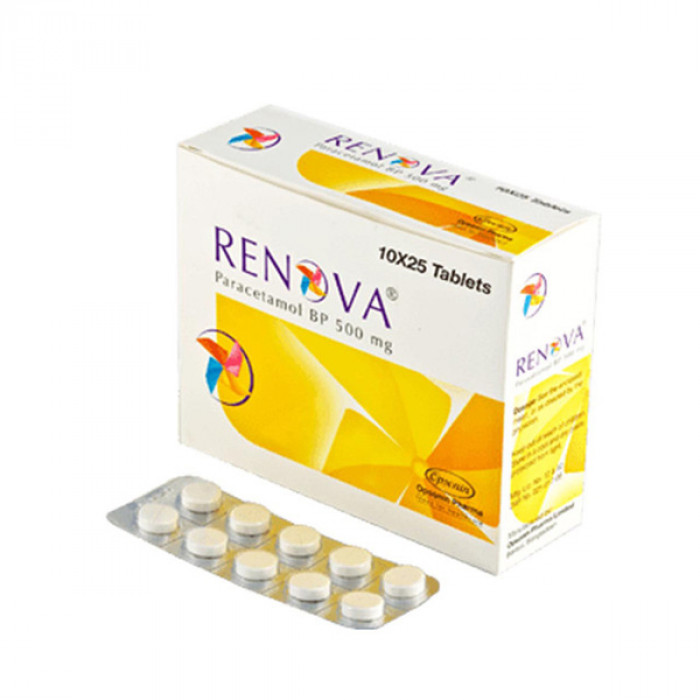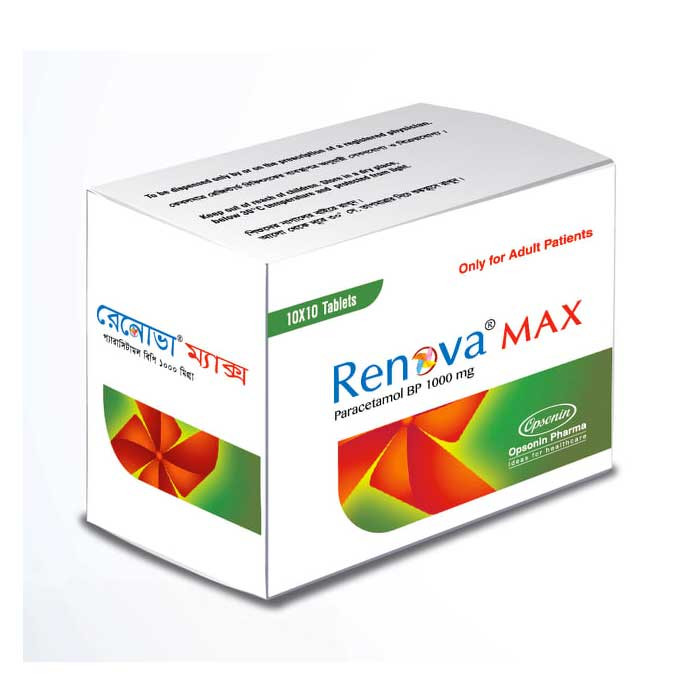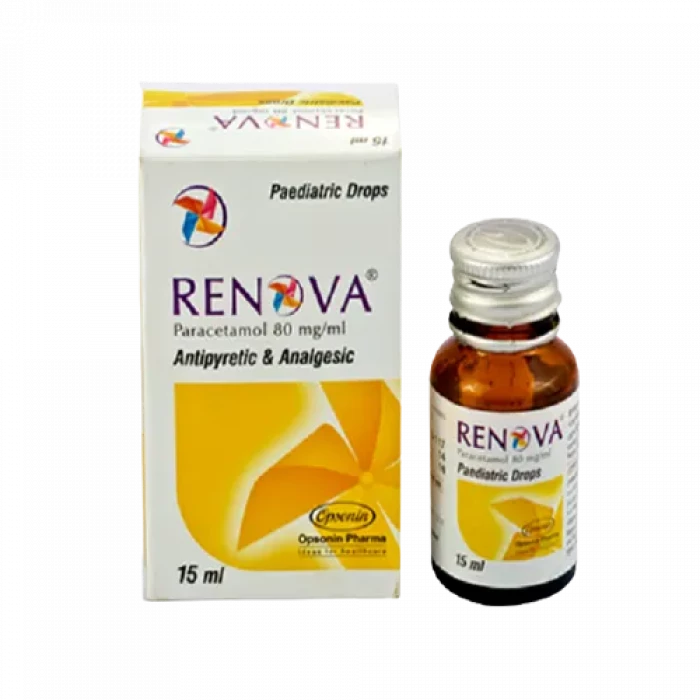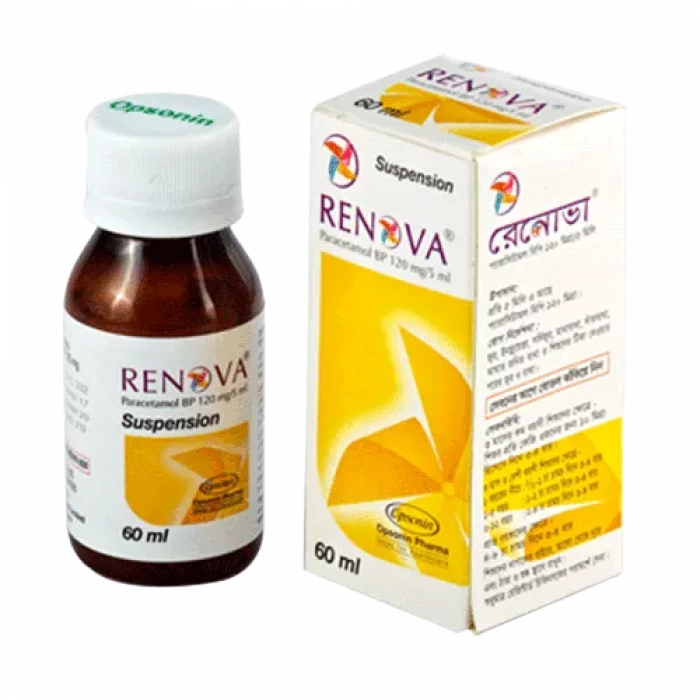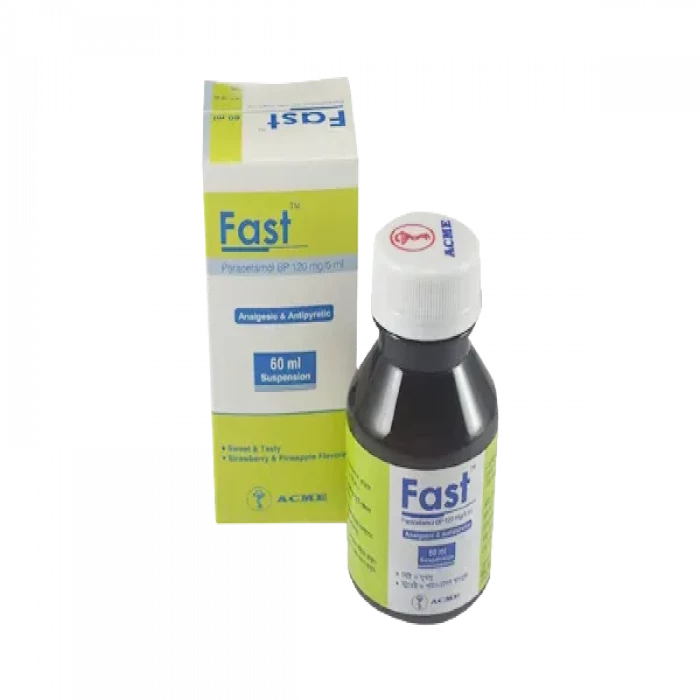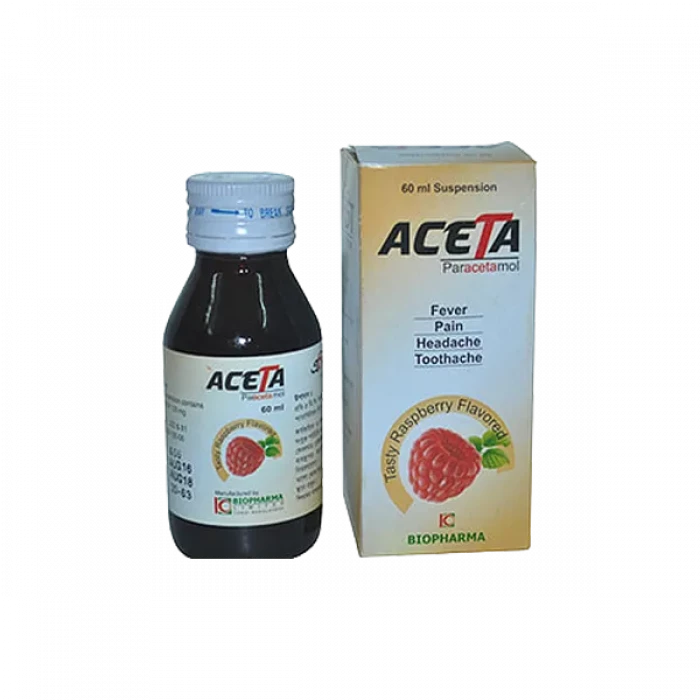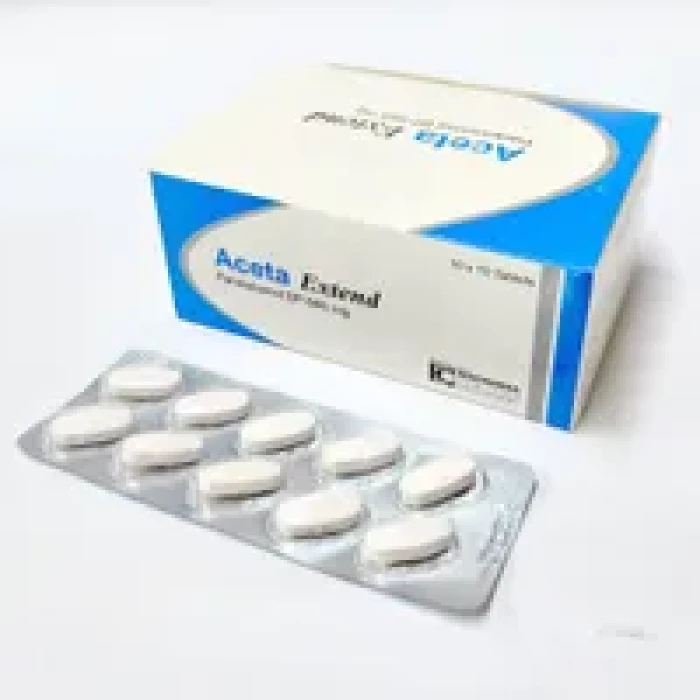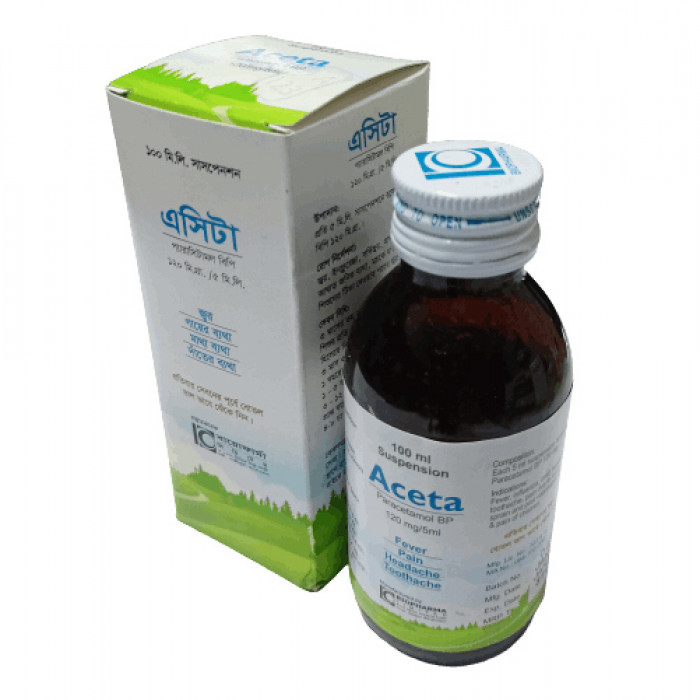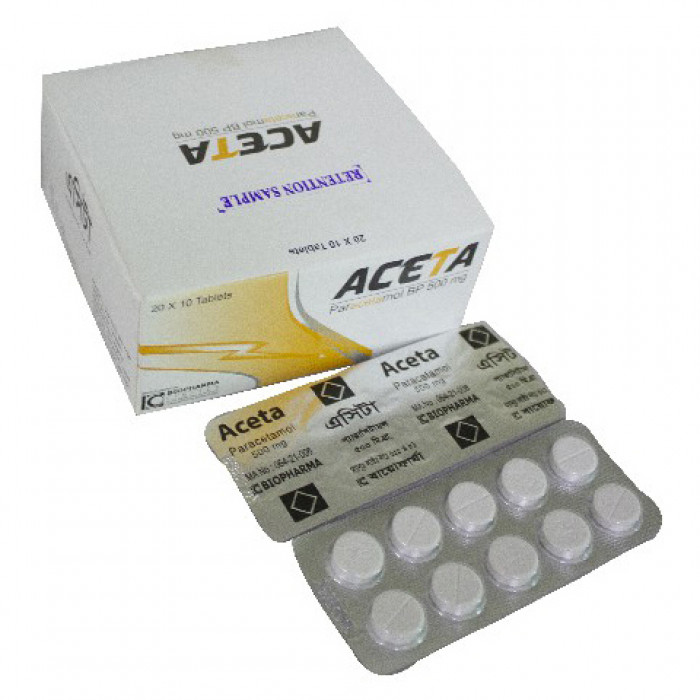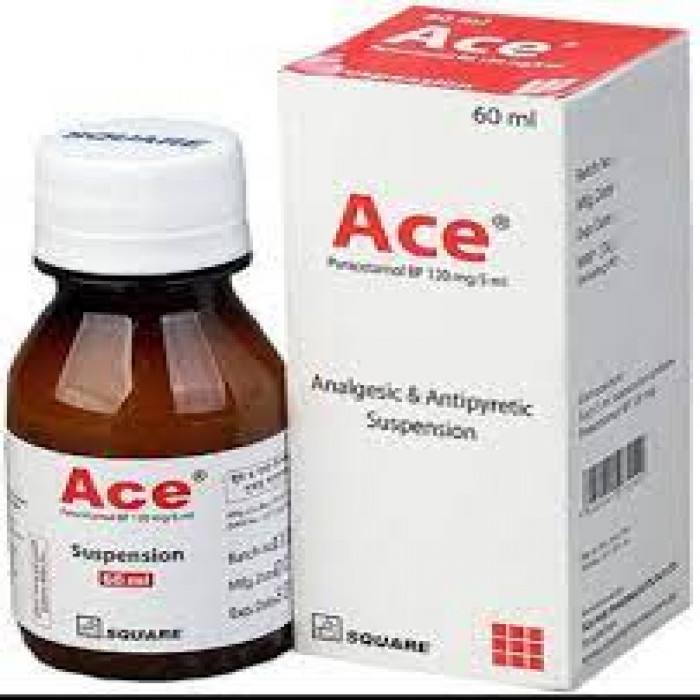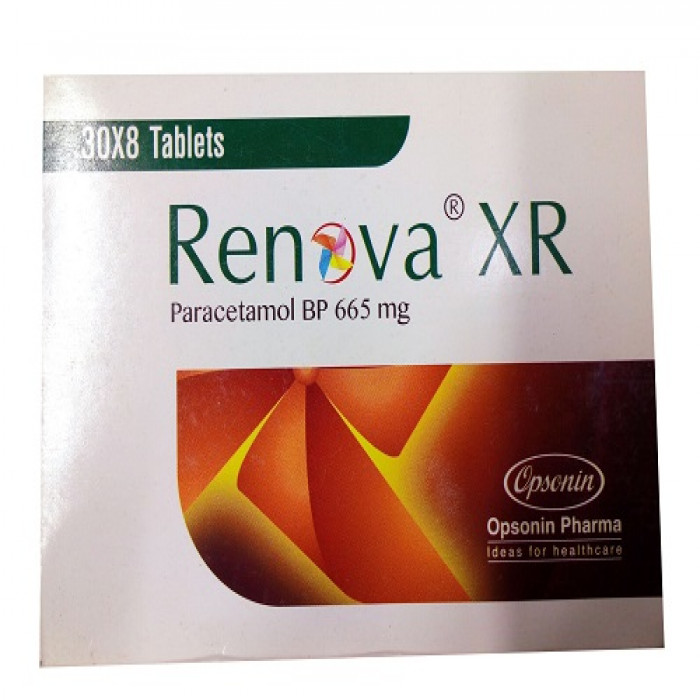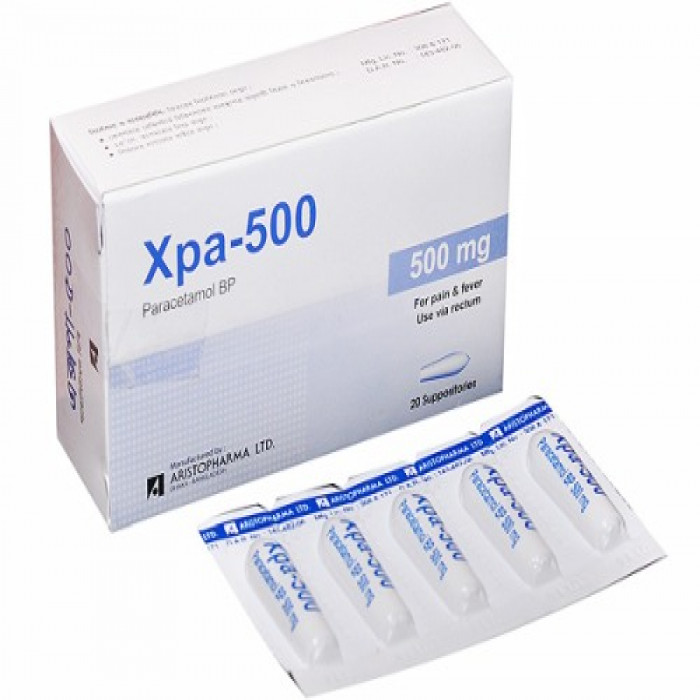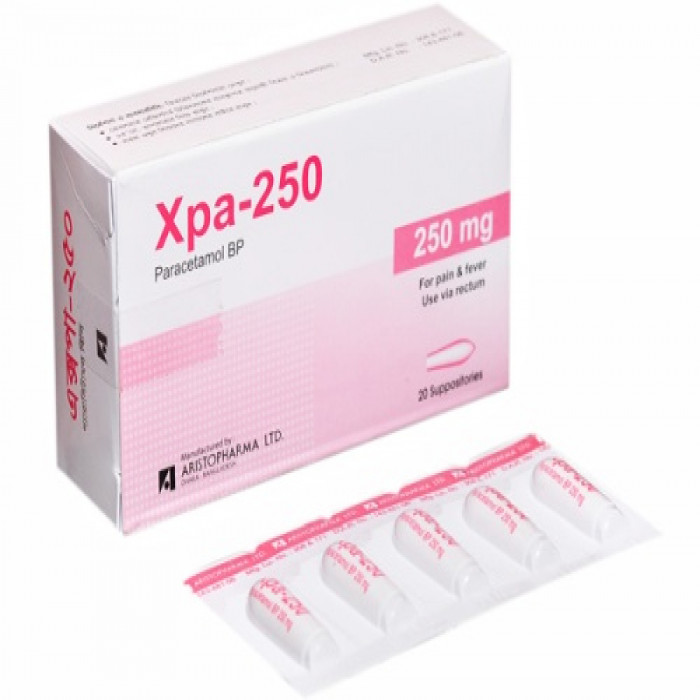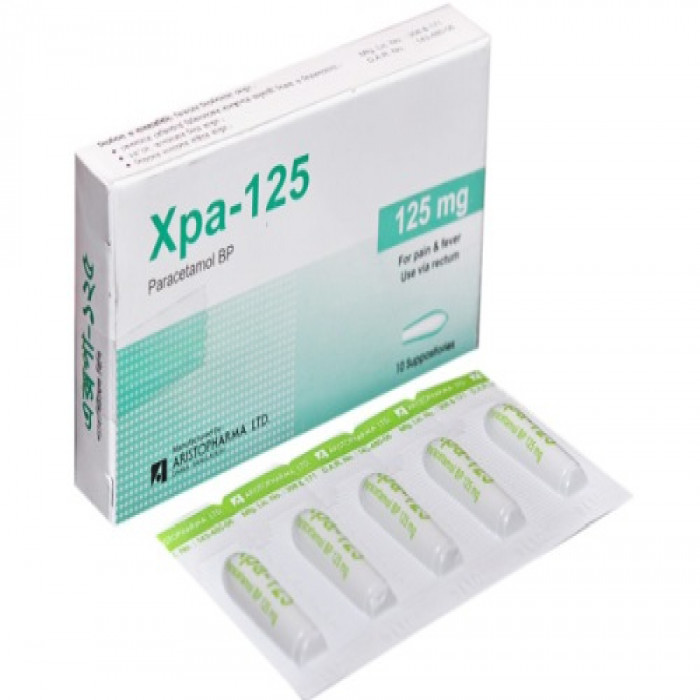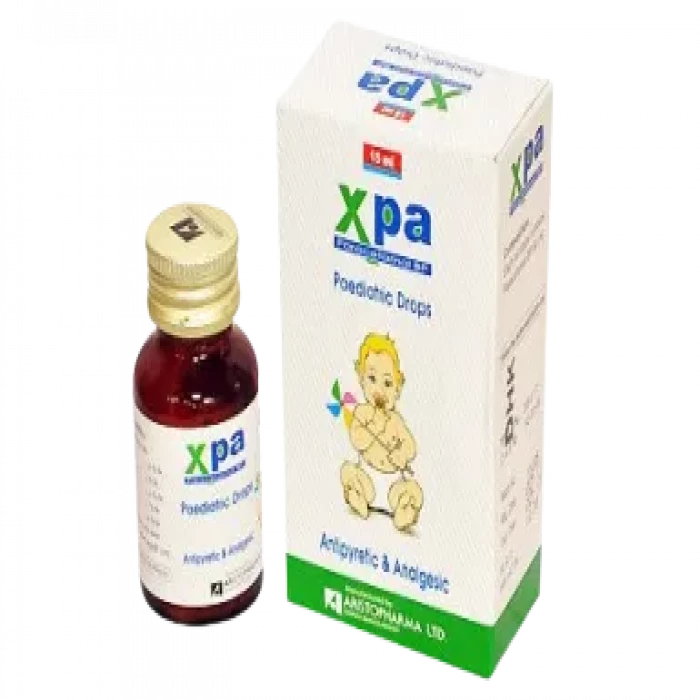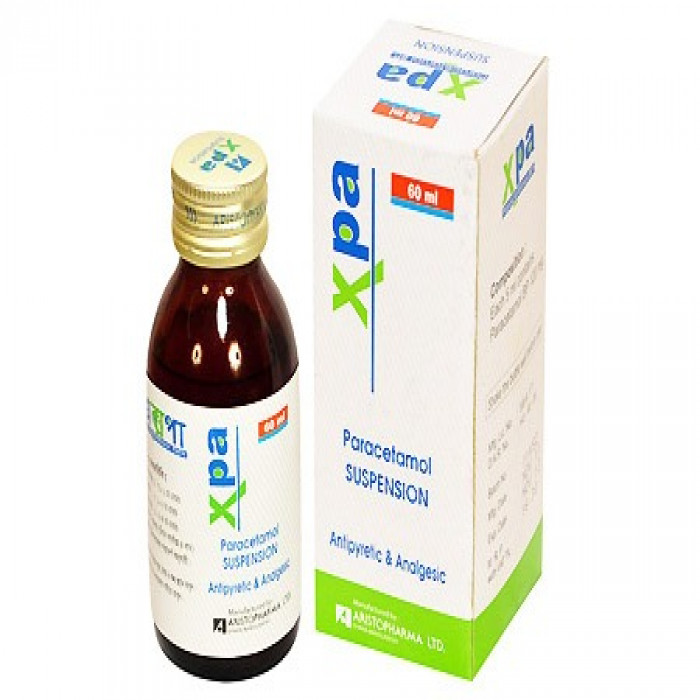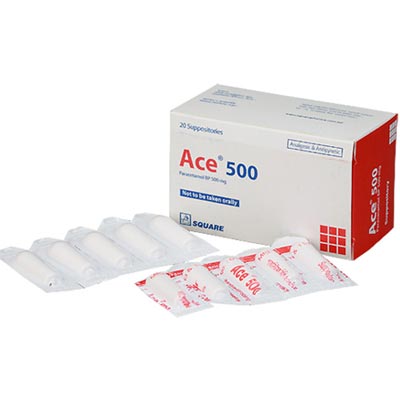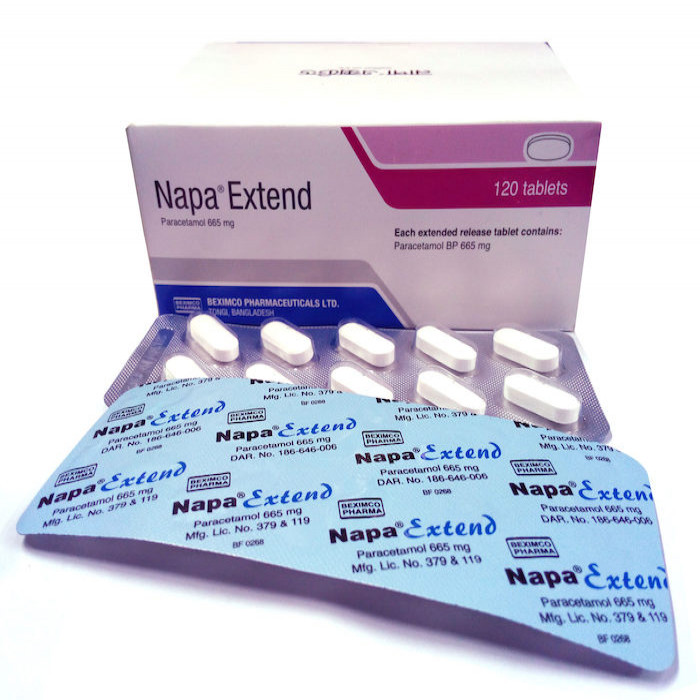
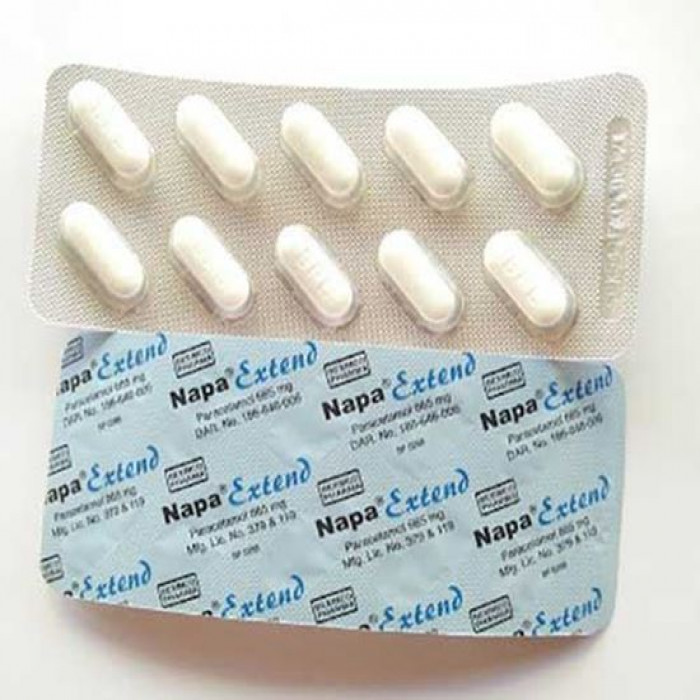
✔ 100% Authentic Product
👁️ Currently Viewing 11740
- Napa Extend (Paracetamol 665mg) is a commonly prescribed medicine for pain relief and reducing fever.
- It can be used to treat various conditions such as headaches, toothache, and the common cold.
- Patients should take Napa Extend regularly as advised by their doctor, with food if possible, and inform their doctor about any other medications or health conditions they may have.
Discount
Price: ৳ 22
MRP:
৳
24
8%
Off

100% Genuine Products, Guaranteed

Safe & Secure Payments, Always

Fast, Secure & Efficient Delivery

Proper Packaging
 Cash on Delivery - All over Bangladesh
Cash on Delivery - All over Bangladesh Regular Delivery - 12-24 Hours, Dhaka City* Charge Tk.39-59
Regular Delivery - 12-24 Hours, Dhaka City* Charge Tk.39-59 Regular Delivery - 24-48 Hours, Other Cities* Charge Tk.99-110
Regular Delivery - 24-48 Hours, Other Cities* Charge Tk.99-110
 ফ্রি ডেলিভারিঃ - ৯৯৯ টাকা+ অর্ডারে, ঢাকা
শহরে
ফ্রি ডেলিভারিঃ - ৯৯৯ টাকা+ অর্ডারে, ঢাকা
শহরে ফ্রি ডেলিভারিঃ - ২৯৯৯ টাকা+ অর্ডারে, ঢাকার
বাহিরে
ফ্রি ডেলিভারিঃ - ২৯৯৯ টাকা+ অর্ডারে, ঢাকার
বাহিরে
100% Genuine Products, Guaranteed
Safe & Secure Payments, Always
Fast, Secure & Efficient Delivery
Proper Packaging
 Cash on Delivery - All over Bangladesh
Cash on Delivery - All over Bangladesh Regular Delivery - 12-24 Hours, Dhaka City* Charge Tk.39-59
Regular Delivery - 12-24 Hours, Dhaka City* Charge Tk.39-59 Regular Delivery - 24-48 Hours, Other Cities* Charge Tk.99-110
Regular Delivery - 24-48 Hours, Other Cities* Charge Tk.99-110 ফ্রি ডেলিভারিঃ - ৯৯৯ টাকা+ অর্ডারে, ঢাকা
শহরে
ফ্রি ডেলিভারিঃ - ৯৯৯ টাকা+ অর্ডারে, ঢাকা
শহরে ফ্রি ডেলিভারিঃ - ২৯৯৯ টাকা+ অর্ডারে, ঢাকার
বাহিরে
ফ্রি ডেলিভারিঃ - ২৯৯৯ টাকা+ অর্ডারে, ঢাকার
বাহিরে
✅ Description:
- Napa Extend Tablet contains Paracetamol, which is classified as an Analgesic and Antipyretic medication. It is commonly used to relieve mild to moderate pain, such as headaches, backaches, toothaches, severe nerve pain, sore throat, period pain, low back and leg pain, muscle, connective tissue, and joint pain. It can also help reduce fever and alleviate symptoms associated with cold or flu.
- Before taking Napa Extend Tablet, it is important to inform your doctor about any existing liver or kidney problems or any known allergies. Caution should be exercised when using this medication in patients with alcohol-related liver problems to avoid the risk of liver damage.
- In pregnant women, Napa Extend Tablet should only be used if specifically advised by the doctor. It can also be used by breastfeeding women. However, it is not recommended for use in children under 10 years of age, and caution should be exercised when using it in elderly patients.
- If you experience any side effects or unusual effects while taking Napa Extend Tablet, it is recommended to consult your doctor for further guidance.
- Please note that this is a general overview, and it is important to follow the specific instructions provided by your doctor or healthcare professional regarding the use of the Napa Extend Tablet.
Safety Advices

Alcohol
UNSAFE
Napa Extend Tablet should be used with caution in patients with chronic alcoholism. Consult your doctor before taking it.

Pregnancy
SAFE IF PRESCRIBED
Napa Extend Tablet should be used with caution in pregnant women only if considered clearly necessary. Your doctor may use the lowest possible dose to reduce the pain and fever only for a shorter duration in pregnant women. Consult your doctor before taking Napa Extend.

Breastfeeding
SAFE IF PRESCRIBED
Napa Extend Tablet should be used with caution in breastfeeding women. Consult your doctor before taking it.

Driving
SAFE
Napa Extend has no influence on the ability to drive and operate machinery.

Kidney
CAUTION
Napa Extend should be used with caution in patients with severe kidney problems. Consult your doctor before taking it.

Liver
CAUTION
Napa Extend should be used with caution in patients with liver disease. Napa Extend is not recommended in patients with severe liver disease and active liver disease.
✔️ Uses of Napa Extend:
- Pain relief
- Treatment of Fever
✔️ Side Effects of Napa Extend:
- Stomach pain
- Nausea / Vomiting
- Fever
- Toothache or tooth pain
- Headache
- Migraine
- Backache
- Body pain
- Musculoskeletal pain
The negative effects of paracetamol are normally mild. Rashes, pancreatitis, and other allergic reactions can occur at any time.
✔️ How to use Napa Extend:
It is important to follow your doctor's instructions regarding the dose and duration of Napa Extend. You should swallow the tablet whole and not chew, crush, or break it. It is recommended to take Napa Extend with food.
✔️ Quick Suggestion of Napa Extend:
- Take Napa Extend with food to reduce the risk of stomach upset.
- Do not exceed the recommended dosage or duration of use.
- Inform your doctor about any other medications you are taking before using Napa Extend.
- If you experience any side effects such as stomach pain or nausea, contact your doctor.
- Do not take Napa Extend for more than three days without consulting a doctor first.
- Store the medication in a cool, dry place away from children and pets.
- If you vomit within 30 minutes of taking Napa Extend, retake the same dose again.
✔️ Indications of Napa Extend:
There are a number of ailments for which paracetamol is prescribed, including fever, the common cold, influenza, headache, toothache, earache, body ache, myalgia, neuralgia, dysmenorrhea, sprains, colic pain, back pain, post-operative pain, postpartum discomfort, inflammatory pain, and post-vaccination pain in children. Joint stiffness, rheumatoid arthritis, and osteoarthritis pain are also all treated with it.
✔️ Pharmacology of Napa Extend:
The antipyretic and analgesic drug paracetamol also has a minor anti-inflammatory effect. The central nervous system (CNS) is thought to be where most of the action of paracetamol (acetaminophen) occurs. By inhibiting both isoforms of the cyclooxygenase enzymes COX-1, COX-2, and COX-3, which are involved in prostaglandin (PG) production, paracetamol (acetaminophen) lowers pain threshold. A para aminophenol derivative with analgesic, antipyretic, and anti-inflammatory properties is paracetamol.
✔️ Dosage & Administration of Napa Extend:
Adult: 1-2 tablets every 4 to 6 hours up to a maximum of 4 gm (8 tablets) daily.
Children (6-12 years): ½ to 1 tablet 3 to 4 times daily. For long-term treatment, it is wise not to exceed the dose beyond 2.6 gm/day.
Swallow it as a whole with a glass of water. It can be taken with or without food anytime. Do not crush, break or chew it.
Your doctor will decide the correct dose and duration of therapy for you depending on your age, body weight, and severity of the condition.
✔️ Pregnancy & Breastfeeding:
Paracetamol (the active ingredient in Napa Extend 665mg Tablet) is classified as Pregnancy Category B by the U.S. Food and Drug Administration (USFDA). Pregnancy Category B indicates that there are no adequate and well-controlled studies on pregnant women, but animal studies have not shown any adverse effects on the fetus.
In general, the use of Paracetamol during pregnancy is considered relatively safe when used at recommended doses and for short durations. However, it is always important to consult with your doctor or healthcare provider before taking any medication during pregnancy, including Napa Extend.
The components of the Napa Extend pass into the breastmilk in a very small amount and has negligible effects on the breastfed baby. Thus, you can take it while you are breastfeeding. Please follow the advice of your healthcare provider regarding the use of Napa Extend or any other medications during pregnancy & Lactation
✔️ Precautions & Warnings of Napa Extend:
- Allergy: Do not take Napa Extend if you are allergic to it or any of its ingredients. If you experience any allergic reactions such as rash, itching, swelling, or difficulty breathing, discontinue the medication and seek medical attention.
- Age restrictions: Napa Extend is not recommended for children below 6 years of age. For children, appropriate pediatric formulations and dosages should be used.
- Pregnancy and breastfeeding: If you are pregnant or breastfeeding, it is important to consult a physician before using Napa Extend. They will evaluate the potential risks and benefits to determine if it is safe for you to use during this time.
- Alcohol consumption: Avoid consuming alcohol while taking Napa Extend as it may increase the risk of liver damage. Alcohol and Paracetamol can both have an impact on liver function and combining them can further stress the liver.
- Impaired nutritional state or dehydration: Inform your doctor if you have an impaired nutritional state caused by factors such as anorexia, wrong nutrition, alcohol abuse, or if you are dehydrated. These conditions may affect how your body metabolizes the medication, and your doctor can provide appropriate guidance.
- Recommended dosage: It is important to follow the recommended dosage instructions and avoid exceeding the prescribed or recommended dose. Taking higher doses than recommended may increase the risk of serious liver damage.
✔️ Storage Conditions of Napa Extend:
Maintain in a dry area at a temperature below 30°C. from light exposure. Try not to freeze. Away from children's reach.
⚠️Disclaimer:
At ePharma, we’re committed to providing accurate and accessible health information. However, all content is intended for informational purposes only and should not replace medical advice from a qualified physician. Please consult your healthcare provider for personalized guidance. We aim to support, not substitute, the doctor-patient relationship.




